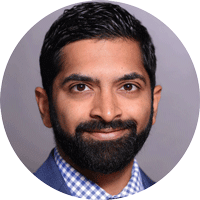

| Catholic University faculty and students are immersed in a culture of research. In this series we offer a sampling of the many big questions they are working on. |

All organizations — workplaces, schools, etc. — have their own specific cultures. Sociologist Brandon Vaidyanathan explores what happens when these cultures are unhealthy.
“Three factors — scripts, models, and habits — shape the hidden curriculum in organizations. Organizational scripts are the beliefs and norms about what it takes to succeed. Dysfunctional organizations have an especially wide rift between their formally espoused ideals (in the mission statement, for example) and the norms that actually govern behavior.”
“We internalize implicit norms and rules about what it really takes to survive and succeed: whom to suck up to, whom to avoid, how to get ahead quickly. When we’re in a new environment (a new job), we look for role models who epitomize success in that environment. Through a subconscious process, we adopt the mannerisms and strategies of these models. In unhealthy environments, these behaviors include cynicism, sycophancy, and sabotage.
“And then, we develop automated responses to environmental cues and triggers. Habituation in the workplace encompasses a wide range of things: our posture, eating habits, methods of distraction, ways of processing information and of treating others. Some habits can contribute to burnout as well as to dysfunctional and even toxic cultures.”
Brandon Vaidyanathan is associate professor and chair of the Department of Sociology. These comments reflect his research on corporate life and on socialization in medical schools. His work spans a wide array of other topics, such as the aesthetic dimensions of science and mental health issues in religious communities.